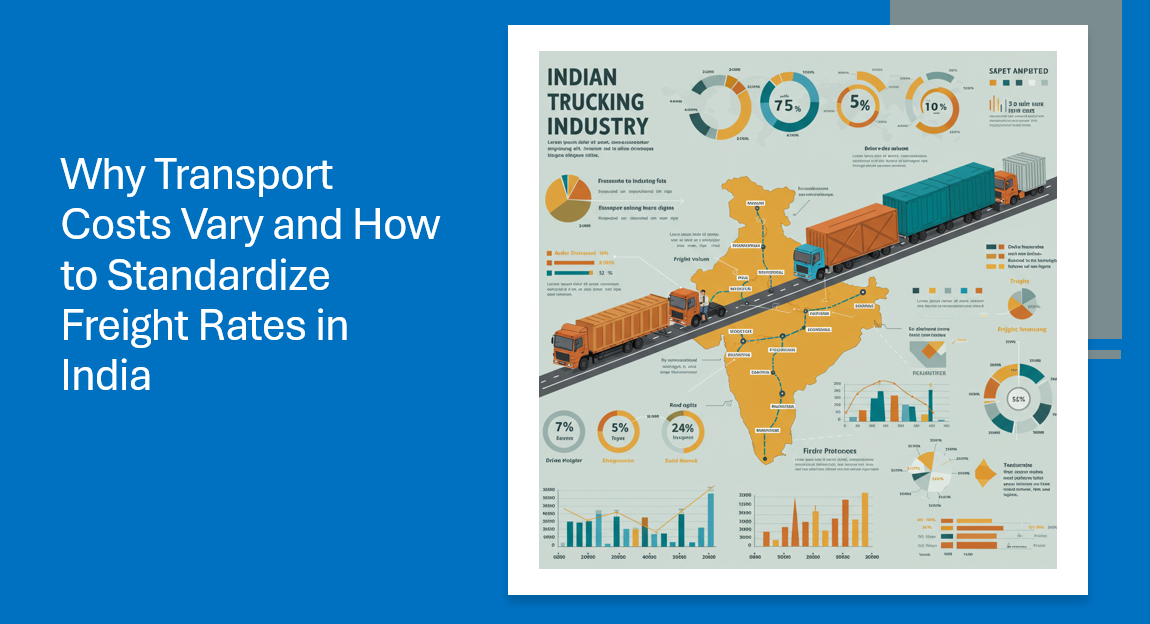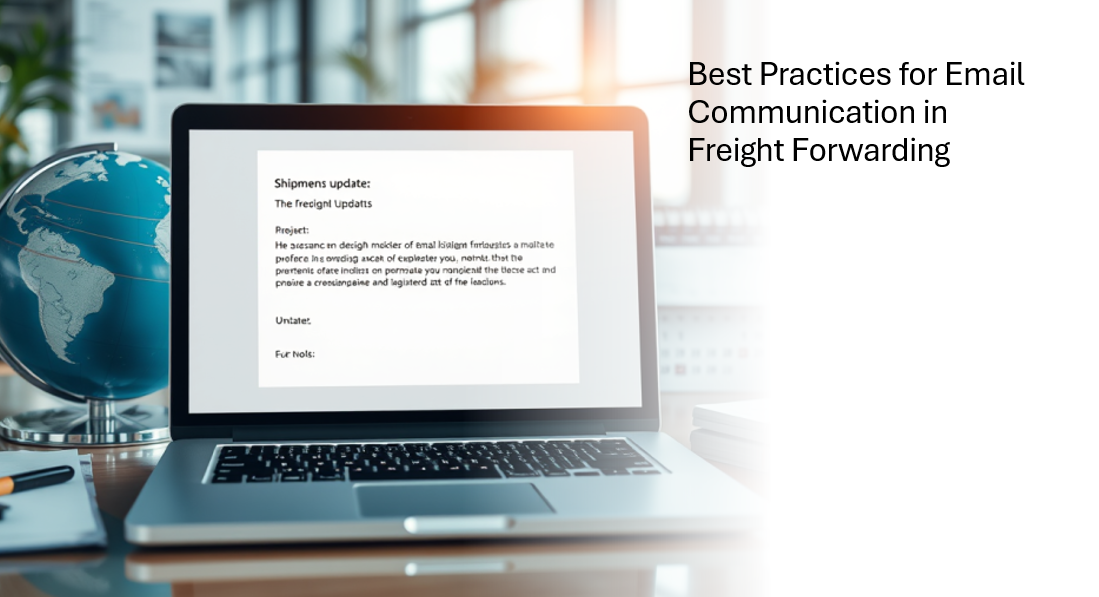Freight forwarders need to focus on more than just operational efficiency. They should also consider Branding and Procurement.

In the ever-evolving world of logistics, freight forwarding stands as a critical component of global trade. The industry plays a pivotal role in ensuring goods move smoothly across borders, navigating complex customs regulations, and managing transportation logistics. However, to remain competitive, freight forwarders must go beyond operational efficiency and consider two often overlooked aspects: branding and procurement. When strategically aligned, these elements can significantly enhance a freight forwarding company’s market position and operational effectiveness.
Branding in Freight Forwarding: Building Trust and Differentiation
Branding is more than just a logo or a catchy tagline; it’s the perception that customers and partners have of your business. In freight forwarding, where trust, reliability, and efficiency are paramount, a strong brand can be the differentiator that sets a company apart from its competitors.
- Establishing Trust: Freight forwarding involves handling valuable goods and navigating complex logistics processes. A strong brand signals to potential clients that your company is trustworthy and capable of managing their cargo with care. Building a brand that emphasizes reliability, transparency, and customer service can reassure clients that their goods are in safe hands.
- Differentiation: The freight forwarding market is crowded, with numerous players offering similar services. A well-defined brand helps a company stand out by clearly communicating what makes it unique. Whether it’s a specialization in a particular type of cargo, expertise in certain geographical regions, or cutting-edge technology solutions, a strong brand highlights these strengths and attracts clients looking for specific capabilities.
- Customer Loyalty: A strong brand fosters customer loyalty, leading to repeat business and positive word-of-mouth referrals. In an industry where long-term relationships are crucial, a brand that resonates with clients can be a powerful tool for retaining business.
- Global Reach: For freight forwarders operating on a global scale, branding can help unify operations across different regions. A consistent brand message ensures that no matter where a client interacts with the company, they receive the same level of service and professionalism. This consistency is particularly important in an industry where seamless global operations are essential.
Procurement in Freight Forwarding: The Backbone of Operational Efficiency

While branding creates a strong external image, procurement is the backbone that supports efficient operations within a freight forwarding company. Procurement involves sourcing the goods and services necessary to keep the business running smoothly, from securing transportation and warehousing to managing supplier relationships and negotiating contracts.
- Cost Management: One of the primary goals of procurement in freight forwarding is to manage costs effectively. By strategically sourcing transportation services, packaging materials, and other essential resources, freight forwarders can reduce operational expenses. Effective procurement practices can also help companies negotiate better rates with carriers and suppliers, leading to significant cost savings.
- Supplier Relationships: Strong supplier relationships are crucial in the freight forwarding industry. Reliable suppliers ensure that shipments are delivered on time, that necessary equipment is available when needed, and that any issues are resolved quickly. Procurement teams play a key role in selecting and managing these relationships, ensuring that the company can deliver on its promises to clients.
- Risk Mitigation: The logistics industry is fraught with risks, from fluctuating fuel prices to geopolitical tensions that can disrupt supply chains. A well-executed procurement strategy includes risk mitigation plans, such as diversifying suppliers, securing long-term contracts, and maintaining a buffer of essential materials. By proactively managing these risks, freight forwarders can avoid disruptions and maintain consistent service levels.
- Sustainability and Compliance: As global regulations around sustainability and compliance become more stringent, procurement plays a critical role in ensuring that a freight forwarding company meets these standards. This includes sourcing eco-friendly materials, working with carriers that adhere to environmental regulations, and ensuring that all operations comply with international trade laws. A forward-thinking procurement strategy not only helps a company avoid legal issues but also aligns with the growing demand for sustainable practices from clients and consumers.
Aligning Branding and Procurement for Strategic Success
To truly excel in the competitive freight forwarding industry, companies must align their branding and procurement strategies. This alignment ensures that the promises made by the brand are supported by the operational capabilities provided by procurement.
- Consistency in Brand Promise: The brand promise of reliability, efficiency, and customer satisfaction must be reflected in every aspect of the company’s operations. Procurement plays a crucial role in this by ensuring that the necessary resources and suppliers are in place to deliver on these promises consistently. For example, if a brand emphasizes speed of delivery, procurement must secure fast and reliable transportation options.
- Leveraging Brand Equity in Procurement: A strong brand can also provide leverage in procurement negotiations. Suppliers and carriers are more likely to offer favorable terms to a well-known and respected company. By leveraging brand equity, freight forwarders can secure better deals and build stronger partnerships with key suppliers.
- Sustainable Branding Through Procurement: As sustainability becomes a key differentiator in the logistics industry, procurement strategies that prioritize eco-friendly practices can enhance the brand’s reputation. By sourcing from sustainable suppliers and reducing the company’s carbon footprint, procurement helps build a brand that appeals to environmentally-conscious clients.
- Client-Centric Procurement: Finally, procurement strategies should be aligned with the needs and expectations of the company’s target clients. Understanding what clients value most—whether it’s cost savings, speed, or sustainability—allows the procurement team to source resources that align with these priorities, reinforcing the brand’s appeal to its target market.
Conclusion
In the freight forwarding industry, where competition is fierce and operational efficiency is paramount, the alignment of branding and procurement can create a powerful synergy. A strong brand builds trust, differentiates the company in the marketplace, and fosters customer loyalty. Meanwhile, effective procurement ensures that the company has the resources and relationships needed to deliver on its brand promises.
By strategically integrating branding and procurement, freight forwarders can not only enhance their market position but also build a resilient and sustainable business that meets the evolving needs of their clients. This holistic approach is key to thriving in the dynamic and challenging world of global logistics.
Stay updated with LOGIXMINDZ! Subscribe to our NEWSLETTER for the latest insights and join our LinkedIn group for even more valuable content







Leave a Reply